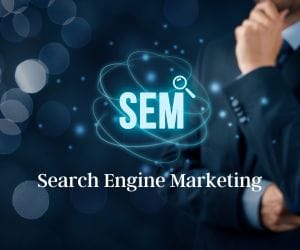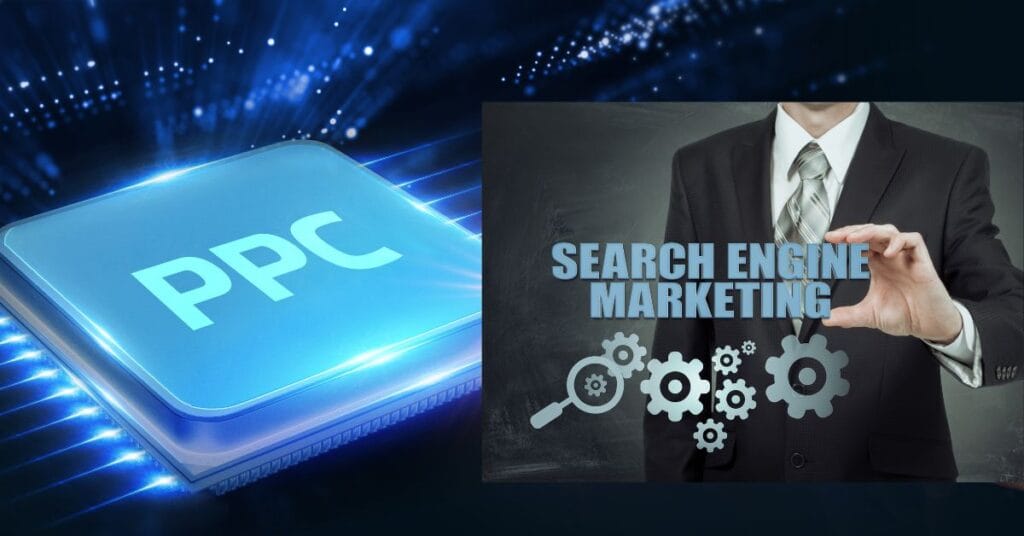In digital marketing PPS and SEM are two different words but these terms are often used together to represent the different theory .So these are essential for building the difference online plan.Are you aiming to establish your presence in the digital advertising realm? With billions of individuals online every day, reaching this audience is essential. This is where PPC (Pay-Per-Click) and SEM (Search Engine Marketing) become relevant. These tactics can elevate your visibility, attract specific traffic, and enhance your ROI.
PPC is a certain advertising plan where a person can click on the ad anytime. These campaigns run on the google ,Yahoo and bing platforms where users can see the quick result in SERPs. For example if you bid on the keyword “ best diet plan ” your ad shows to those people that search it and you pay when they click on it because PPC is a best budget control plan .
SEM is a broader approach and it contains both SEO and PPC . In this way increasing the observability .SEM has different plans for brand reach like content creation ,ad campaign ,keyword searching and technical SEO . So here you know about some differences between SEM and PPC .
What is PPC?

PPC, (Pay-Per-Click), is a digital marketing in which advertisers incur a cost whenever someone clicks on their advertisement. It’s a method of purchasing traffic for your website instead of generating it naturally Imagine setting up a virtual auction. When users search those terms, your ad appears, and you pay only if they click on it. Platforms like Google Ads dominate this space, offering a user-friendly way to run PPC campaign.
Advantages of PPC
- Immediate Outcomes
- Focused Audience
- Quantifiable Performance
What is SEM?

SEM, short for Search Engine Marketing, is a comprehensive term that includes both paid promotions (such as PPC) and organic methods (like SEO) aimed at enhancing visibility on search engines.
Although PPC concentrates exclusively on paid advertisements, SEM combines both organic and paid strategies, offering a broader perspective on digital marketing.
Strong Point OF SEM
- Comprehensive Method
- Economically Efficient
- Increased Visibility
Key Components of PPC Campaigns
Keyword Analysis:
Keywords are essential to PPC campaigns. By utilizing resources such as Google Keyword Planner or SEMrush, so you can identify effective keywords that match user intent.
Advertisement Creation:
Creating an ideal advertisement requires composing captivating text that connects with your target audience. Remember to add an engaging call-to-action, like “Shop Now” or “Begin Today.”
Offer Administration:
Bidding is essential yet competitive. Establish a budget, track expenses, and adjust bids to surpass rivals without exceeding your spending limit.Web Pages for Conversion
An effective landing:
page enhances your advertisement. Make sure it looks attractive, is user-friendly, and is designed for effective conversions.
SEM Strategies
Merging SEO and PPC
Why pick one between SEO and PPC when you can combine both? By synchronising organic and paid tactics, you can engage users at each phase of the buyer’s journey.
Search Engine Positioning
Aim to enhance both organic and paid placements. The more visible you are, the greater the trust and clicks you’ll receive.
PPC and SEM Indicators to Track
Click-Through Ratio (CTR)
A high click-through rate suggests your advertisement connects well with users. If it’s underwhelming, reassess your advertisement text or audience targeting.
Quality Rating
Google gives a quality score to your advertisements based on their relevance. Increased scores lower expenses and enhance ad positions.
Cost per Click (CPC)
Monitor CPC to make sure you’re maximizing your spending effectiveness.
Rate of Conversion
This metric indicates the number of clicks that result in significant actions such as purchases or sign-ups.
Pay Per Click (PPC), and Search Engine Marketing (SEM) in digital marketing?
In digital marketing PPC and SEM are two plans that play an important role to target the traffic and boost your website visibility.These are closely connected to each other for different purposes . PPC is a paid advertising model where advertisers pay on user click .In this way your product visibility increases ,manages quick traffic ,and generates a good lead for their purpose. Businesses can get the advantegs targeting the different options such as demographics , people interest ,gender ,age ,location ,device ,budget etc. So in this way you can target the right audience for your purpose because this is budget friendly and the advertiser has control that he wants for daily use .
SEM is an umbrella strategy that has two plans: SEO and PPC .Its best goal is website presence online with these tools like paid and organic so that your website presence increases in the search engine and gains more traffic. In this way traffic increases and instanty ranking the website in search engines .Your business can get the maximum reach and strong brand authority for this way .So SEM is the best plan for achieving your goals because you use search engine optimization for organic traffic and pay per click for paid ads .
Conclusion
PPC and SEM are revolutionising strategies for companies seeking to excel in the online realm. With effective planning and implementation, these strategies can yield remarkable outcomes, no matter your sector. For the effective result these two strategies PPC and SEM are most important .In this way you can get more traffic , best brand command ,drive instant traffic and for endurable ranking .These both strategies are essential for achieving the long term results .
FAQs
What is the primary distinction between PPC and SEM?
PPC concentrates exclusively on paid ads, whereas SEM encompasses both paid and organic techniques.
What advantages can small businesses gain from PPC campaigns?
Small businesses receive focused traffic, enhanced visibility, and quantifiable ROI without spending excessively.
Is SEM solely focused on paid ads?
No, SEM combines SEO and PPC for a holistic strategy to online visibility.
Which are the best tools for PPC campaign management?
Leading tools consist of Google Ads, SEMrush, and HubSpot.
How frequently should I track my PPC campaigns?
Consistent observation is essential. Strive for daily assessments and weekly evaluations of performance.

